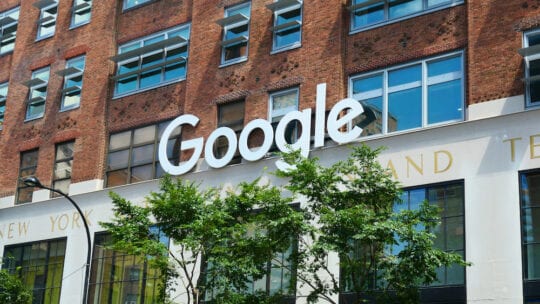
Today, in what looks like a commitment to putting employees’ health and safety first in the wake of COVID, Google announced its workforce will remain remote through June 2021. Google originally planned for employees to stay home through Dec. 2020. The move involves more than 200,000 employees, full-time and contract, across parent company Alphabet, Inc.
The Wall Street Journal reported the decision came directly from Alphabet Chief Executive Sundar Pichai, who considered not only health concerns, but the uncertain plans for school districts, and employees dealing with at-home instruction.
“I know it hasn’t been easy,” Mr. Pichai wrote in a note to staff. “I hope this will offer the flexibility you need to balance work with taking care of yourselves and your loved ones over the next 12 months.”
If a global behemoth like Google can pivot quickly to address company concerns, many other organizations may follow to keep employees informed. Planning ahead instead of reacting to a crisis seems to be a de rigueur communication move, and a smart one at that.
Cat-like Communications Reflexes
In a soon-to-be released PRNEWS survey, 72 percent of respondents said "the emphasis on being agile has become clear." (More results will be released in mid-August.) Stakeholders, including PR pros, expect companies to stay on top of virus news and remain flexible and timely with communication.
In our June 2020 Crisis Insider newsletter, Kelly Stepno, senior director, D.C. practice lead, crisis management and litigation communication for APCO Worldwide, discussed the importance of being ready to make quick adjustments to any crisis plan.
“Planning is important,” Stepno said. “I’m never going to say that it’s not. But you have to make sure that if you have plans in place you can be nimble and listen to what’s going on around you, listen to stakeholders and look at the data. And more particularly, you can manage those micro issues that, if not managed well, can grow into bigger issues for organizations. We’re all going to live in a state of disruption for the foreseeable future.”
Stepno said APCO utilizes a number of frameworks to think about problem-solving and risk tolerance.
“We ask the broader questions and then more specific questions and help plan, so organizations can be as prepared as they can be in the moment.”
APCO also pays attention to what is happening in clients’ regional governments to match planning with the law.
“We’re working closer with our public affairs team. There are so many things happening at the state and local level, so we need to make sure we understand what the entire landscape looks like.”
Postponed Joy in Mudville
And while Google finds itself having to adapt and change plans, another great example of quick pivots is Major League Baseball. The COVID-19 virus does not discriminate on the basis of strength, health, timing or fortune. Earlier today, the Miami Marlins announced 14 players tested positive for COVID, just in time for the Marlins’ home opener.
Miami Marlins CEO Derek Jeter (yes, that Derek Jeter), quickly released a statement.
— Miami Marlins (@Marlins) July 27, 2020
The Marlins’ games against the Baltimore Orioles have been postponed, as well as games between the New York Yankees and Philadelphia Phillies. The Phillies just hosted the Marlins this weekend.
Many hoped MLB could get through the first week of its season schedule without a COVID-19 crisis. Now, though, executive will have to determine the next steps. Detroit Tigers’ manager Ron Gardenhire told the Detroit Free Press that MLB is ready for this scenario and knows how to proceed.
“[Y]ou think about those guys not being able to play for however many days, but (also) their health,” Gardenhire said. “So those are situations that are probably going to happen off and on, and MLB’s ready for them. They’re all set. We know how to handle these. There’s protocols for every one of them. You just hope it doesn’t come into your clubhouse. Unfortunate for the other side it happened to a guy and some other people, too. So you have to deal with it. We have to figure out how to get by it and play with it and that’s where we’re at.”
